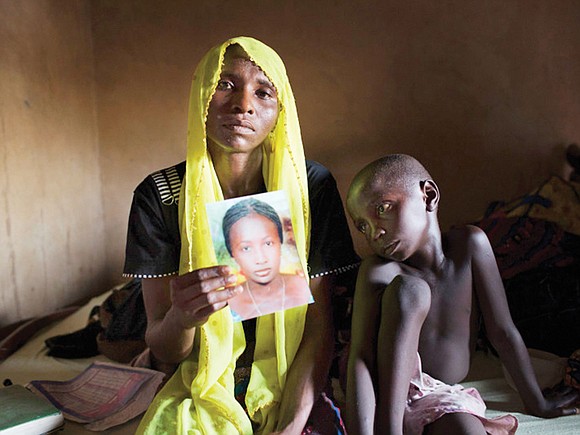Religious extremist group frees kidnapped girls; ready to release more
10/22/2016, 2:59 p.m.

Thomson Reuters Foundation
The Islamic State-allied faction of Boko Haram, which last week freed 21 of more than 200 Chibok girls kidnapped in April 2014 in northeast Nigeria, is willing to negotiate the release of 83 more of the girls, the Nigerian president’s spokesman said Sunday.
About 220 girls were taken from their school in 2014 in Chibok in northeastern Borno state, where Boko Haram has waged a seven-year insurgency aimed at creating an Islamic state. Thousands of people have been killed and more than 2 million people have been displaced.
The kidnapping brought outrage worldwide and the girls’ plight was promoted by a Twitter hashtag #bringbackourgirls.
Authorities said in May one of the missing girls had been found and Nigeria President Muhammadu Buhari vowed to rescue the others.
A faction of the militant group released 21 of the girls on Oct. 13 after the International Red Cross and the Swiss government brokered a deal. The girls were brought from the northeastern city of Maiduguri to the capital Abuja to meet state officials.
CNN published on its website a picture it said showed several of the freed girls wearing veils and being escorted by soldiers in Maiduguri, capital of Borno state.
“These 21 released girls are supposed to be tale bearers to tell the Nigerian government that this faction of Boko Haram has 83 more Chibok girls,” Garba Shehu, spokesman for President Buhari, told the Thomson Reuters Foundation by phone.
“The faction said it is ready to negotiate if the government is willing to sit down with them,” Mr. Shehu said, adding that the state is prepared to negotiate with the branch of Boko Haram.
The Islamic State-allied splinter group said the rest of the kidnapped Chibok girls were with the part of Boko Haram under the control of figurehead Abubakar Shekau, according to Mr. Shehu.
Boko Haram apparently has split with a big group moving away from Mr. Shekau over his failure to adhere to guidance from the Iraq- and Syria-based Islamic State, which in August named Musab al-Barnawi as its new leader for West Africa.
But that appointment was later dismissed in a 10-minute audio clip on social media by a man purporting to be Mr. Shekau, exposing divisions within the jihadist group that has plagued Nigeria and neighboring nations of Chad, Niger and Cameroon.
Nigeria’s Information Minister Lai Mohammed last Thursday denied reports that the state had swapped captured Boko Haram fighters for the girls’ release and said he was not aware if any ransom had been paid. He said a Nigerian army operation against Boko Haram would continue.
In recent days, the Nigerian army has been carrying out an offensive in the Sambisa forest, a stronghold of Boko Haram.
The militants controlled a swath of land around the size of Belgium at the start of 2015, but Nigeria’s army has recaptured most of the territory. The group still stages suicide bombings in the northeast, as well as in neighboring Niger and Cameroon.





